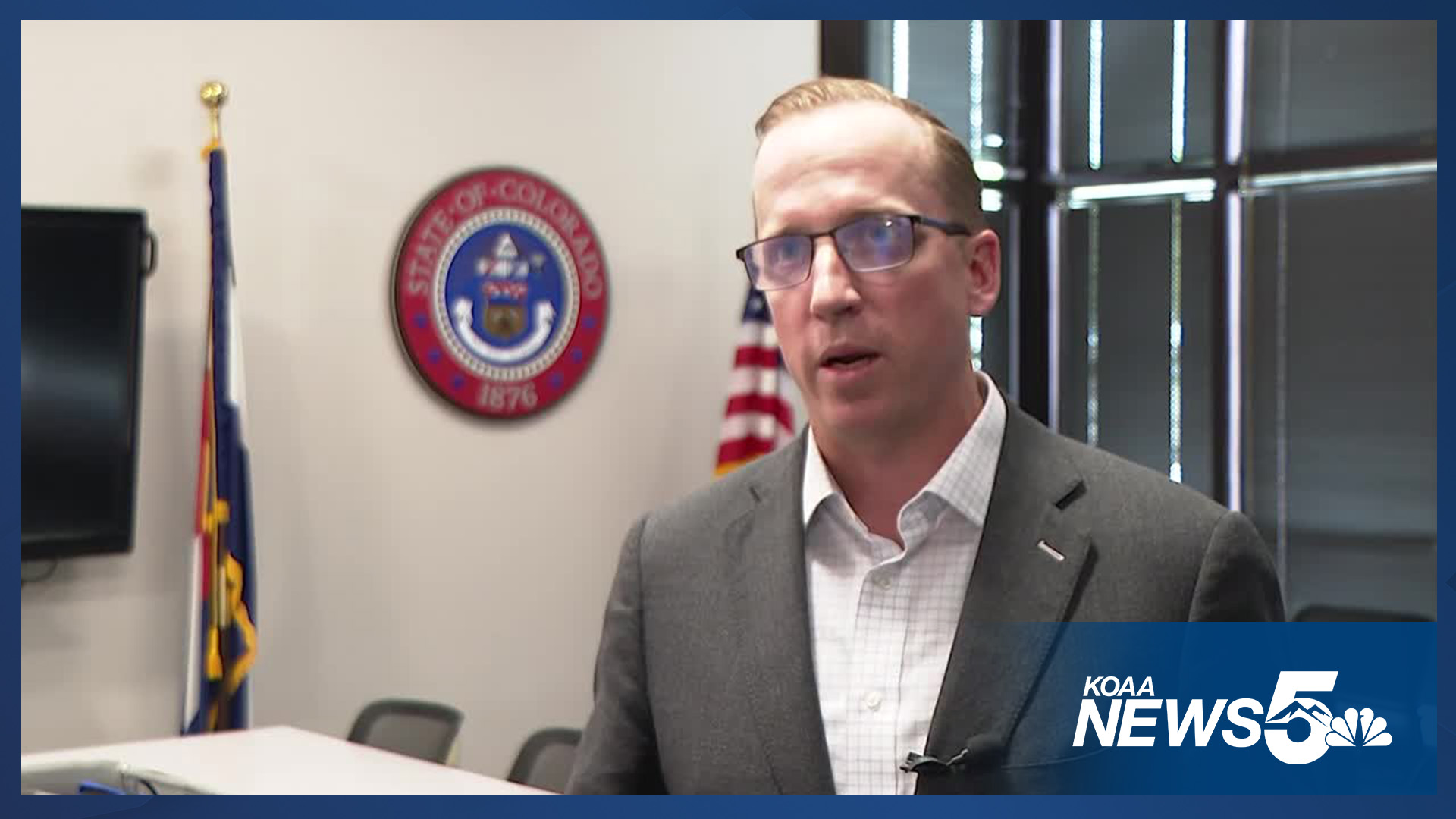DENVER — At the heart of the government shutdown are Democrats' demands on healthcare, including an extension of Affordable Care Act (ACA) subsidies set to expire at the end of the year.
Estimates nationwide show health insurance premiums are expected to more than double, with subsidized enrollees spending over $1,000 more next year on average, according to independent health policy group KFF.
Coloradans using the open marketplace are facing a 170% average premium increase next year, said the Colorado Consumer Health Initiative.
“I am a small business owner. I have been an owner/operator of a business in Colorado Springs since 2019. I buy health insurance for my family of 5 through the Colorado Exchange. My premiums are going to go up by 300%, to over $4,000 per month, per the latest estimate I have received, if the democrats are unsuccessful,” said a KOAA viewer in an email.
Michael Conway, the Colorado Commissioner of Insurance, said the 170% average increase would be for those on a Silver Plan. If someone is on a more expensive plan, the increases could be even more drastic.
“It's really going to be the point that I think is imperative for folks and for Congress to understand is it's going to be incredibly scary for people,” said Commissioner Conway. “We're going to have people that are making just unreasonable choices–incredibly scary choices–of trying to make a decision about paying a 300% premium increase for their health insurance coverage or paying their rent or paying their mortgage or buying groceries.”
Conway said anywhere from 75,000 to 100,000 Coloradans are at risk of losing access to healthcare next year as premiums become too unaffordable.
The ACA subsidies, or Enhanced Premium Tax Credits (EPTCs), were first introduced in 2021 through the American Rescue Plan Act and were extended to the end of 2025 in the Inflation Reduction Act.
According to KFF, the ACA has capped how much subsidized enrollees pay for health insurance since 2014 at a certain percent of their income, on a sliding scale. The EPTCs further lowered the share of income that ACA Marketplace enrollees paid.
Based on data from KFF, if the EPTCs aren’t extended next year, a family of four making $75,000 would see their premiums rise over $3300 next year.
As a result, Colorado Insurance Commissioner Conway said Congress is running out of time to act. Typically, notices of premium rates would be sent out about this time, but they’ve held off until the end of the month, hoping for action in Washington.
Conway said many Coloradans likely aren’t even aware of how much their premiums are about to increase without the EPTC extension.
Outside of higher prices for Coloradans on the open marketplace, Conway said there will be other downstream economic effects like less discretionary spending at places like restaurants, as budgets are crunched.
“Once we start to look at the healthcare ecosystem at large, we're talking about maybe 100,000 people losing access to healthcare. Those folks are still going to get sick. They're still going to go to the hospital, and that's going to become uncompensated care,” Conway said. “There's real risk for our rural parts of the state that we could start to see hospitals have to close doors as we have more and more Coloradans lose access to healthcare.”
Conway also said he expects employer-based coverage to increase next year as more people lose insurance, driving up the costs for everyone else. He said Congress still has time to act, but the window is closing.
After President Trump directed the Department of Defense to tap alternative funds to pay the troops this week, a pressure point for Democrats to cave in on the government shutdown has disappeared.
Now, the Democrats are likely hoping for public pressure on Republicans once the insurance notices of premium increases begin to roll out.
But Republicans continue insisting on first passing a short-term budget deal, called a Continuing Resolution, to reopen the government before negotiating on healthcare policies.
“Senate Democrats continue to block a clean continuing resolution, and Americans are now hurting because of it. When our federal workforce misses their next paycheck, it’s on the Democrats. They own this shutdown,” said Republican Congressman Jeff Crank from Colorado’s 5th Congressional District. “We can have a conversation about healthcare after the federal government has reopened.”
Republican Congressman Jeff Hurd, who represents Colorado's 3rd Congressional District, similarly said he’d be open to a “short-term” extension of the EPTCs, but not indefinitely.
“We need to address those underlying cost drivers. It's not enough to just have a federal subsidy. We need to talk about the things that are actually increasing those [healthcare] costs,” said Rep. Hurd. “I'm ready to do that on the Republican side, but first, we need to get our government open.”
Open enrollment begins November 1.
Email Senior Reporter Brett Forrest at brett.forrest@koaa.com. Follow @brettforrestTV on X and Brett Forrest News on Facebook.
Brett can also communicate via encrypted apps like Signal. Due to the sensitive nature of ongoing reporting from federal actions, he is willing to take steps to protect identities.

State proposes cutting paid caregiving hours for Colorado families
Some of those Medicaid cuts are already moving forward with last year's executive order from the governor. Families with children who need 24-7 care tell News5 they are feeling frustrated.



